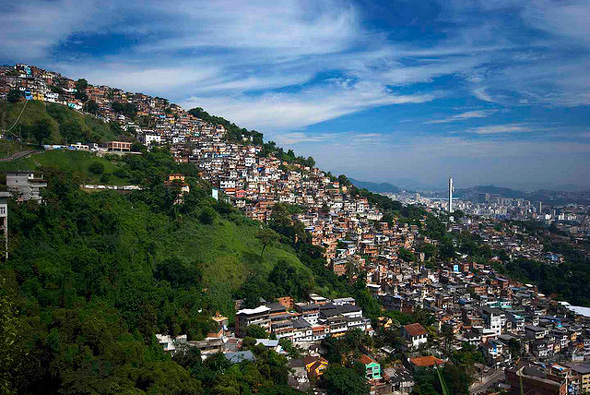Urbanization is both an opportunity and a challenge,” argued Christopher Williams from
UN-HABITAT during a panel discussion at American University’s
School of International Service. “Sustainable Cities: A discussion on the social, economic, and environmental strategies contributing to urban resilience” brought together sustainability experts to discuss innovative strategies for urban resilience in the face of the 21st century’s looming challenges.
Urbanization “is an opportunity in the sense that there’s a tremendous amount of innovation that’s going to take place with a concentration of ideas and economies and cultures in these urban spaces,” said Williams. “It’s a challenge in the sense that many of these cities are ill-equipped to handle this large influx of population.”
Williams outlined the principal challenges of an
urbanizing world:
Land and shelter: New policies are needed for creating affordable housing for new urban citizens, securing land tenure, and limiting forced evictions of future urban dwellers.
Infrastructure: Finding solutions for fragile water, transportation, and sanitation systems requires thoughtful planning, solid investment, and demand management. Investors must be cognizant that many cities have limited resources and institutional capacity.
Municipal planning, management, and governance: Managing decentralization and interfacing with communities and the private sector are critical to success.
Innovative finance: Future sources of investment will increasingly be limited to private funds and community savings. Official Development Assistance (ODA) will have to be used in strategic ways to trigger such investments.
Williams noted that existing conceptions of urban challenges–that they are “messy, complex, interlinked”–paint an unflattering picture for policymakers, dramatically reducing their willingness to engage with these environments. The implied heavy transaction costs of operating in urban areas can discourage investors. Development agencies often look for opportunities where they can get in and out quickly; historically, most aid has focused on rural areas, usually with relatively short planning windows (5-10 years).
Today, decisions regarding the movement of urban populations are linked to extremely contentious power relations. Williams posited that by couching programs within the frame of adaptation and resilience, mayors and municipal governments may be able to tackle issues of social inequality that have plagued some cities for years.
Citing a 2008 seminar on community resilience, the Wilson Center’s Blair Ruble argued that the world’s increasing attention to urban challenges holds the risk of creating programs and institutions that are blind to the rich complexity of these systems. Although the theme of last month’s World Urban Forum 5 in Rio de Janeiro was “The Right to the City,” he said that many organizations were redefining “resilience” in top-down terms, silencing the variety of vulnerable voices that make up urban centers.
The visible commitment by the United States delegation to the World Urban Forum was noteworthy, said Williams, as it represents a dramatic departure from status quo. American foreign policy and development assistance have predominantly focused on agricultural policy, with varying degrees of interest on water and sanitation. Surprisingly, little attention has been paid to land tenure issues, and even less to urban issues.
This shift, Williams said, may be due to a change in perspective under the Obama administration. For the first time, many staffers have experience working on urban issues. The newly created Office of Urban Affairs, within the Domestic Policy Council, is headed by Obama advisor Valerie Jarrett. This new high-level engagement and issue integration demonstrates that urban issues are important to the White House, which has trickled down to the EPA, the Department of Agriculture, and the Department of State.
Domestic urban centers have received new initiatives and funding through the Reinvestment Act, spurring the creation of projects targeting transportation, urban planning, and regional economic growth. Many observers hope, however, that this newfound engagement will translate into solid action internationally, as many urban and rapidly urbanizing centers cope to adapt to the future.
Photo Credit: “Favela no de Rio,” courtesy flickr user kevin.j.

 A Publication of the Stimson Center.
A Publication of the Stimson Center.



